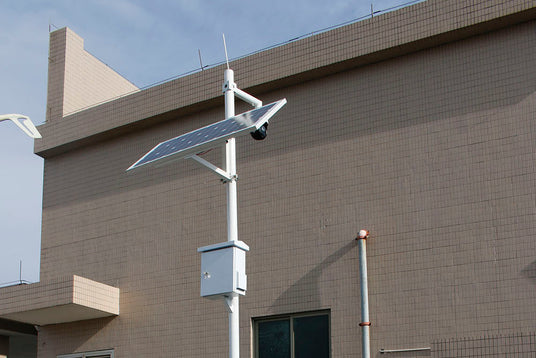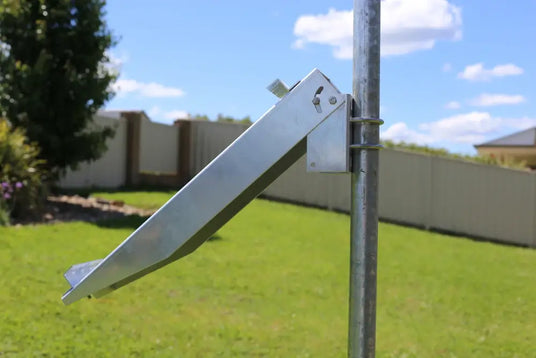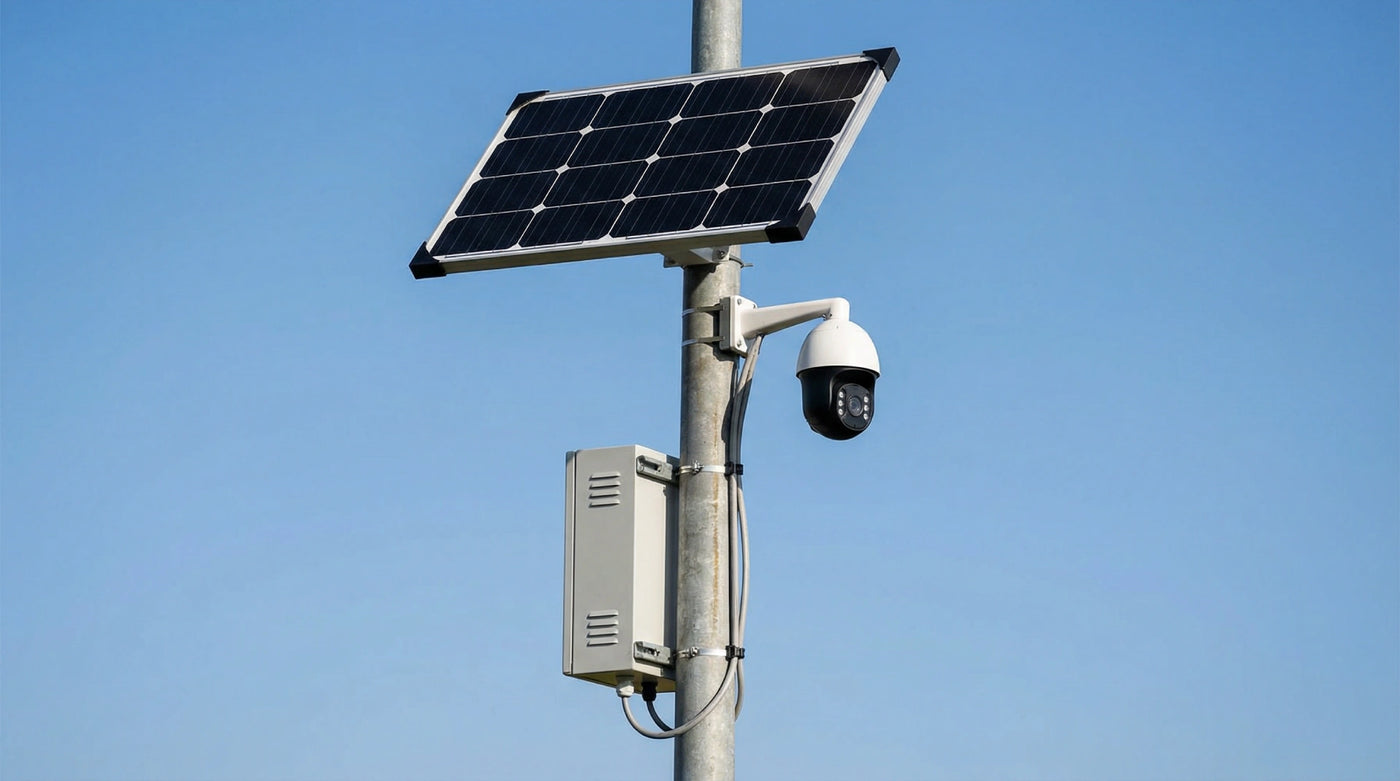Keep eyes on the site and access moving—without trenching AC or babysitting batteries. LinkSolar designs compact, reliable solar for 4G/Wi-Fi/PoE cameras, NVRs, routers, and gate openers. The goal is simple: predictable daily harvest and clean wiring that’s safe to service.
Who This Is For
- Remote entrances, farms, yards, and construction sites where AC runs are impractical.
- Camera poles with partial canopy or shifting shade across the day.
- Gate motors that need standby power plus short, high-current pulses.
- Projects that want fewer truck-rolls through better autonomy and field-serviceable hardware.

Sizing That Won’t Lie
- Budget energy, not just watts. Add all device watts × hours = Wh/day. Include idle/standby for cameras, routers, IR LEDs, and gate controllers.
- Design for the worst month. Divide Wh/day by worst-month sun-hours to get panel watts.
- Add losses (20–30%). Controllers, wiring, temperature, and DC-DC conversion.
- Choose autonomy. 1–2 days for milder climates; 3–5+ days if security must stay up through storms.
- PoE realism. Injectors/switches add overhead; direct DC powering of cameras/routers is more efficient when possible.
Example (4G camera + router):
Camera 6 W (avg) × 24 h = 144 Wh; Router 2 W × 24 h = 48 Wh → 192 Wh/day.
Losses 25% → ~240 Wh/day. Worst month 3.5 sun-hours → ~70 W panel.
With 3 days autonomy → ~720 Wh battery (≈ 60 Ah @ 12 V usable).

Placement & Mounting That Beat Adding More Watts
- Panel placement beats panel size. Put the module above fence lines and arm gates to escape moving shade.
- Aim & tilt matter. 30–45° tilt improves winter harvest and sheds rain/snow; re-aim seasonally if you can.
- Short, tidy wiring. Keep DC runs short; use the right AWG for distance; add a drip loop at the entry gland.
- Service without ladders. Mount the enclosure at chest height; leave slack and labeling for fast swap-outs.

Power Architectures That Actually Work
- Direct DC camera systems (4G/Wi-Fi). Panel → Controller → 12 V battery → Camera/Router via DC feed. Prefer DC-DC buck to camera voltage; use a low-voltage disconnect (LVD) to avoid brownouts/corruption.
- PoE camera systems. If you must use PoE, budget the injector/switch overhead; keep the PoE run short; choose an MPPT when panel Vmp is well above battery voltage or when strings are used.
- Gate openers. Motor pulses demand stiff wiring and fusing; isolate the camera/router power from motor spikes using dedicated regulators or filters. Verify duty cycle of gate operations (opens/day) when sizing autonomy.
Build Your Security & Gate Solar Kit
Work We’ve Delivered — Security & Gate
| Customer / Use Case | Solution (key components) | Panel & Construction | Outcome |
|---|---|---|---|
Farm Entrance Camera | Pole-top module at 35°; chest-height enclosure; labeled in-line fuse; seasonal re-aim. Tilt bracket (15°–60°) | Glass-laminated 30 W; stainless clamps | Stable day/night video; fewer false outages in winter |
Storage Yard Gate | Separate DC rails for gate motor vs. camera/router; surge path to ground; torque-marked fasteners. Solar Panel Bracket collection | Framed 40–60 W; air-gap for cooling | Gate cycles + camera uptime without nuisance resets |
Rural Driveway | Camera + LTE router; weekly check of voltage/harvest; labeled disconnect. Monitoring kit | 20–40 W array; 30–45° tilt | Remote diagnostics cut site visits; steady stream quality |
Construction Site Corner | Temporary pole with compact array; conduit down the pole; drip loop; color-coded harness | Framed 20–30 W; quick-release clamps | Reliable day/night surveillance during on-off shifts |
Ranch Back Gate | Battery autonomy sized for 4 storm days; low-voltage disconnect to protect storage | Mixed panel; sealed enclosure | No brownouts; controller logs confirm recovery after storms |
Park Perimeter | Camera cluster powered DC-direct; IR only at night; injector removed to save overhead | Small array; buck converters | Lower idle draw; improved nighttime runtime |
* Harvest varies with season, shading, temperature, and duty cycle. For exact sizing, send device datasheets and duty profile.






